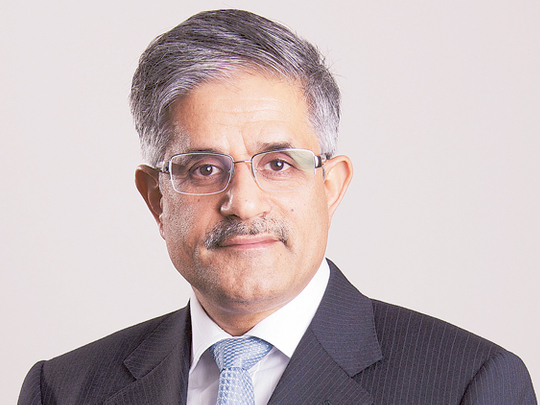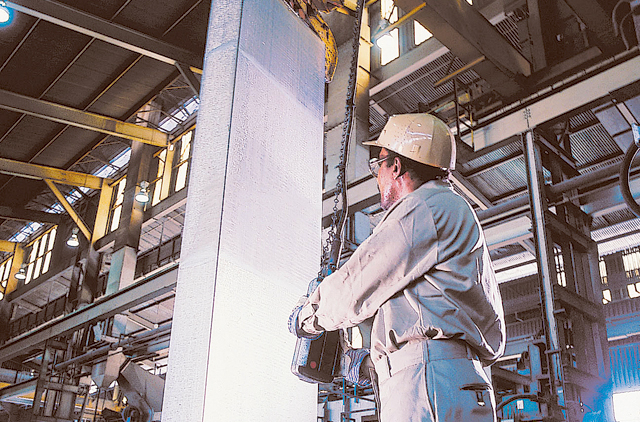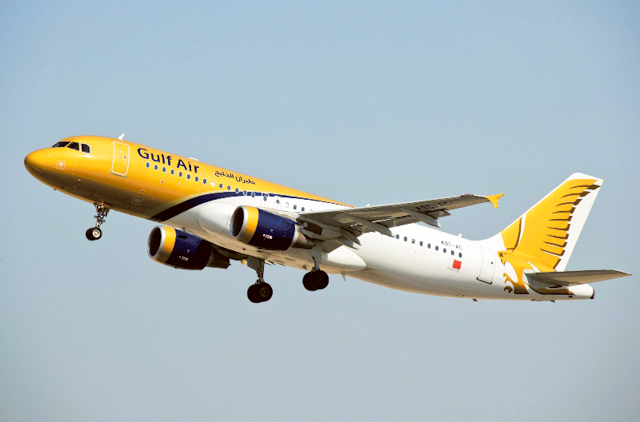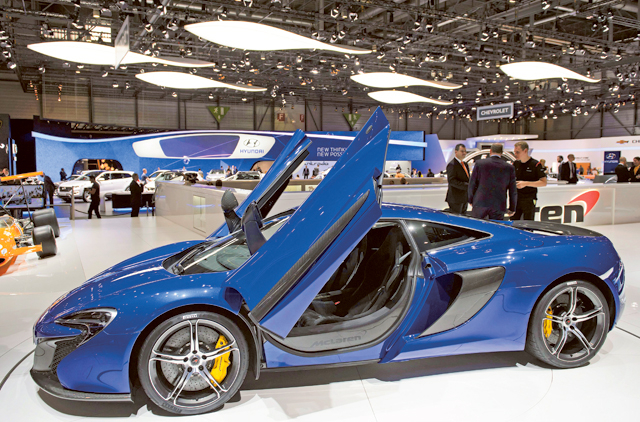
Bahrain’s national holding company and sovereign wealth fund has weathered several years of losses and is about to see spectacular growth, the charismatic Chief Executive Officer Mahmoud Hashim Al Kooheji told Gulf News. He says that Mumtalakat’s major loss maker Gulf Air is being turned round, Alba remains on track with substantial profit, and the whole group is benefiting from the discipline of Mumtalakat’s insistence on good governance and transparency.
Al Kooheji backs his infectious optimism with hard numbers, and says that despite Mumtalakat’s assets dropping from just over 5 billion Bahraini dinars (Dh48.71 billion) in 2012 to just over 4 billion dinars in 2010, he expects them to double to 8 billion dinars in 2019.
“I am optimistic about the future, and we have turned the corner. I expect to double Mumtalakat’s consolidated total assets to 8 billion dinars in five years time,” Al Kooheji told Gulf News in an exclusive interview in Bahrain. “There is genuine commercial interest in Bahrain again.”
“Our half year results for 2013 (ending 30 June, 2013) reflect a net income before impairments of 49.1 million dinars, compared to a net loss of 34.9 million dinars for the same period in 2012. We also achieved a net profit before impairments of 45.2 million dinars in 2012, compared to 45.9 million dinars for the same period in 2011,” Al Kooheji said.
Mumtalakat owns or has dominant holdings in 39 companies, ranging from the massive aluminium producer, Alba, and Bahrain’s national airline Gulf Air, through a variety of strategic and legacy businesses, in various sectors including manufacturing, financial services, telecoms, real estate, transport and tourism, and food production.
Mumtalakat is locally based in the majority of its businesses: 80 per cent of its holdings are in Bahrain, and most of the remaining 20 per cent is in the Gulf region. The hugely successful aluminium producer Alba makes up between 60 to 65 per cent of Mumtalakat’s revenue.
Al Kooheji told Gulf News that when looking for acquisitions, Mumtalakat has no mandate to support particular sectors for national strategic reasons. His mission is to find companies that make good commercial sense, and as head of the national investment company he has been asked to “grow the wealth of the nation”.
“We look for long term growth, and we are a long term strategic investor. We want capital growth over time and we do not interfere in the management of a company. We are an active investor but passive the running of the business itself,” Al Kooheji explained. “We are long term investors and unlike private equity who sell after three to five years, we look at the whole cycle of the business, and are prepared to wait if it makes commercial sense”.
In addition, Mumtalakat has been very tough in imposing transparency and good governance. Al Kooheji gave the example of Gulf Air, where Mumtalakat was wrestling with large losses in the airline Bahrain inherited from its legacy partners, and a variety of frequencies and routes that made little commercial sense but were required by the government.
After a thorough review of the costs of the troubled airline, Al Kooheji went to the government and said that Gulf Air would have to drop certain routes for commercial reasons, but if the government insisted that they continue for social or other reasons, such routes would need to be transparently subsidised. On this basis, Gulf Air is now on the road to return to profitability based on commercial clarity.
When asked where Mumtalakat is looking for acquisitions, Al Kooheji said that North America and Europe were his favoured territories because “these areas have good governance and transparency, the laws are clear and corporate governance is respected and adhered to.
“We are not in the asset management business but we are helping create an economy. Most sovereign wealth funds have a lot of cash to invest but we have a lot of companies that are running and we need to expand them and find opportunities.”
“We do not have multiple sovereign wealth funds in Bahrain and if there is any economic activity it comes through us. We are both a developing and commercial arm of the government, and they expect us to bring commercial discipline to all our businesses which is very important.
Alba — the long running star
Alba (Aluminium Bahrain) is the star of the Mumtalakat portfolio, and it is largest holding bringing in between 60 to 65 per cent of Mumtalakat’s revenue. “It has grown from 120,000 metric tonnes of production in 1979 to just above 900,000 metric tonnes of production that it manages today, and all of that expansion has been self-funded,” Al Kooheji told Gulf News.
“They never ask the state for money, and financed and funded themselves.” Aluminium is Bahrain’s second major export after oil, and Alba has been in business since 1968 with metal purity rates consistently above 99.7 per cent, which is how it is ranked as the leading smelter in the Gulf region, and among the top 10 in the world.”
A current $2.5 billion (Dh9.1 billion) expansion plan will support Alba’s position of continuing to generate significant positive cash flow while maintaining its advantage as a global low cost producer. “Overall, our portfolio of companies generated overall consolidated revenues of 1,163 million dinars in 2012, which represents broadly a 10 per cent decline year on year driven primarily by cyclically lower LME pricing of aluminium, which impacted revenues of Alba,” Al Kooheji said.
A major development for Alba was to list on the stock exchanges in both Bahrain and London, which means that Alba has to be within the London rules. “In everything they do they do have to adhere to the London requirements. That is now part of the company’s culture,” said Koheeji, pointing to this example of how good governance was the core of his strategy for Mumtalakat.
Al Kooheji points out that given Mumtalakat’s holdings in Alba, there are good opportunities in downstream aluminium, describing such investments as a “must” as the holding company seeks to build on its existing holdings. Alba’s exports however represented 22 per cent of Bahrain’s non-oil and gas exports in 2012.
Alba intends to focus on growth in the Middle East & North Africa. Alba says that it is the world’s fourth largest aluminium producer but looking ahead, it plans to double its size in the next 10 years, and a major step in that direction will to expand the existing five production lines to six.
Gulf Air — the erstwhile problem
The loss that Mumtalakat has reported for several years is entirely due to Gulf Air’s losses, but the airline has turned the corner and is moving towards profit. Which is why Al Kooheji is so confident about the future growth of the whole of Mumtalakat. “Gulf Air was the only drain on our balance sheet for years,” Al Kooheji told Gulf News.
“Gulf Air’s restructuring was challenging and many tough decisions were made. However, we have accomplished a lot and have already started to see positive outcomes on a number of levels. The network, fleet and staff are now at the right level to drive the airline forward successfully and we do not currently anticipate any further downscaling.”
The 2013 provisional annual results indicate that year-on-year the airline has reduced its overall losses by over 54 per cent exceeding the target of the restructuring plan. “This unprecedented cut in Gulf Air’s losses was achieved by implementing an aggressive strategy focused on strengthening the airline’s core services through optimising its network, streamlining its structure and reengineering its processes to transform it into a more efficient national airline,” he said.
“We have a huge shift as the 2012 half year result showed a 107 million dinar loss for Gulf Air, and the 2013 half year result showed a 54 million dinar loss [before the government grant]. By the end of 2013, I expect the trend to be even better,” said Koheeji. “In 2012 Gulf Air lost more than 220 million dinars, and in 2013, I expect Gulf Air will lose less than 90 million dinars.
“We identified what the problems were with the balance sheet and told the government that we have to do something about the loss making services, or the government has to fund it. And those activities are now part of the state budget.
“Gulf Air was benchmarked to identify the commercially successful operations that we could justify as shareholders. Then we added services and activities that the government has asked for and now pays for on top. Therefore we are not deprived of our just results,” said Al Kooheji.
McLaren — the brand new trophy
Mumtalakat is happy with its investment in the car manufacturer and Formula One racing company McLaren. “We are convinced that McLaren is a long-term investment. It is a car manufacturing company with great technology and skills,” said Al Kooheji.
“We have split it into two companies: McLaren Automotive [in which Mumtalakat has a 48.56 share] and McLaren Group [in which it has a 50 per cent share], so that we can focus in each on their respective tasks of racing and car manufacturing.”
McLaren Automotive makes around 375 cars a year, which are a hybrid between a sporting car and F1 cars, so it competes with Lotus. “The engineering prowess of the company has produced technologically-advanced high performance sports cars, the MP4-12C and the latest addition, the P1,” Al Kooheji said. “This history of innovation and excellence is something we are happy to bring to Bahrain, with a view to encouraging similar innovation on a local scale.”
McLaren Group is the Formula One racing operation, and Al Kooheji said: “We are proud to be associated with one of the best-managed F1 teams, and one that has a strong track record of innovation both for the F1 and for the general automotive industry.”
McLaren was founded in 1963 and has won more than 180 Formula 1 grand prix races, more than any other F1 marque. What interests Mumtalakat is the way one of motor racing’s most successful competitors has developed high-tech skills that it can transfer to the whole group. The company’s cutting-edge electronics division services both the Formula 1, Indy Car and Nascar efforts, and also supports the 1990s’ original super car, the F1, and the later 12C and P1 high-performance cars.
Mumtalakat also sees its investment in McLaren as supporting its ownership of Bahrain International Circuit which uses the Bahrain Grand Prix to bring a substantial amount of new revenue to the Bahrain economy.
Mumtalakat has tracked the spending around the Bahrain Formula One, and has calculated that it brings $1 billion of direct spend and another $2 billion of indirect spend to the country. “This is a success by any measure,” Al Kooheji said.
Legacy
Mumtalakat also owns a lot of old legacy Arab entities, which were set up with good intentions many years ago, but did not stick to commercial sense, said Al Kooheji. These are now looking more solid, as he referred to the long-established Gulf Companies like Apicorp (Arab Petroleum Investment Company), Arabsat (Arab Satellite Communications Organisation) and ASRY (Arab Ship Building and Repair Yard).
“They started because the governments of the region identified a need, but then needed to accept commercial discipline, and work with transparency and good governance. It was not easy but was a must for long term success,” said Al Kooheji.
Property
Bahrain’s real estate remains a key target sector and Mumtalakat is working on two major projects in Durrat Al Bahrain, where it is expanding existing facilities and looking at how to add to Bahrain’s tourism destinations; Hawar Island where it is upgrading the existing resort and expanding on the existing tourism offering; and the Al Jazzayer Beach Resort redevelopment project, which is a huge undertaking to renovate and refurbish the popular beach resort’s public and private areas.
“We do not need housing. There is a huge demand for hotels and Bahrain needs a lot more. The potential is huge and there is room for a lot of regional and international tourism to come to Bahrain,” said Al Kooheji. “The political headlines do not put people off.”
Property developments in Bahrain, along with all Gulf states, suffered badly during the recession so Mumtalakat is looking at various local projects that have stalled on a case-by-case basis. “We ascertain their viability from a commercial perspective, and determine whether there was any benefit to us for stepping in and providing assistance. Mumtalakat is not responsible for subsidising or bailing out any projects, we did take a very critical view of each and evaluated them very carefully,” said Al Kooheji.















